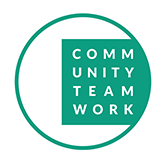

Spring Celebration 2024 & Commemoration of 60 years of Community Action

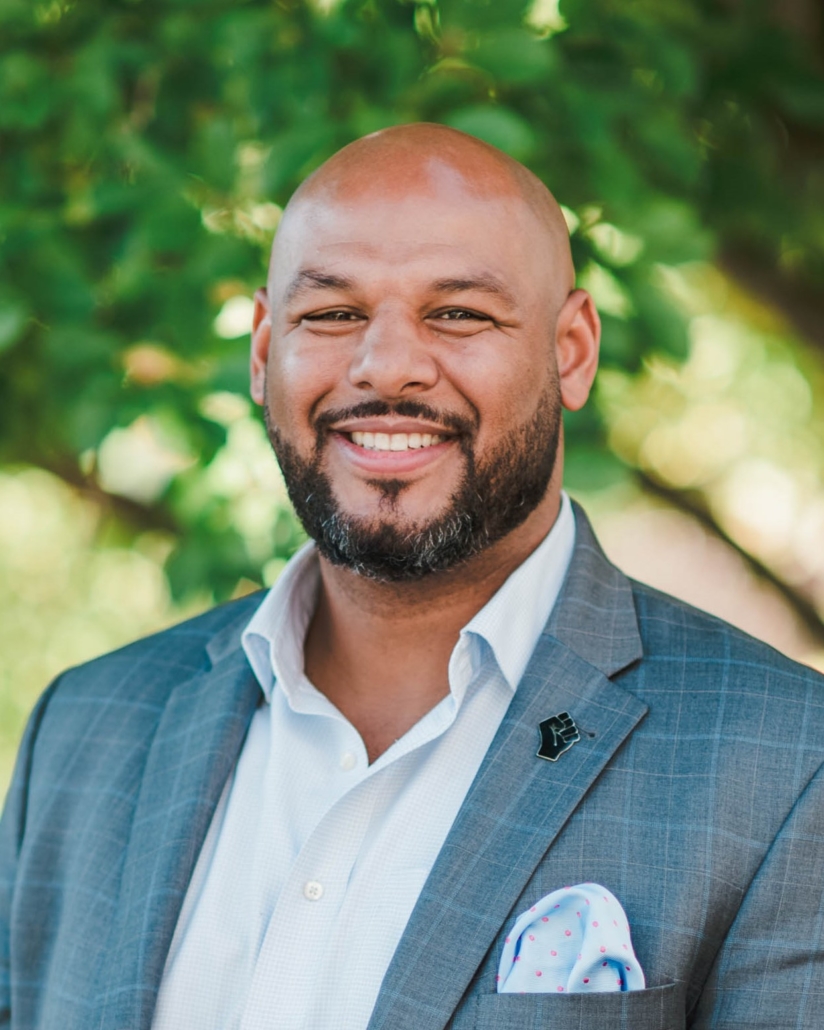
Throughout Black History Month, CTI has been publishing profile features of local Black leaders to celebrate #LowellBlackExcellence. Check back regularly throughout the year as we continue to honor leaders by learning about their experiences, perspectives, and the wisdom they share in our local, national and international communities.
Carl W. Howell
Nominated by Community Teamwork, Inc.
What is your title/role/organization and/or involvement in the community?
What does Black History Month Mean to you?
What can the community do more of to recognize Black History during the year?
What has been the most rewarding part of your commitment to the community?
What advice would you give to future generations of leaders in the community?
How did you become inspired to make a difference in your community?
What advice would you give to young people looking to make a positive influence in their community?
What was the most difficult obstacle you had to overcome to become a leader in your community?
#LowellBlackExcellence #CommunityLeader #Leadership #Appreciation #BlackHistoryMonth #BlackLivesMatter #grateful #DEIatCTI
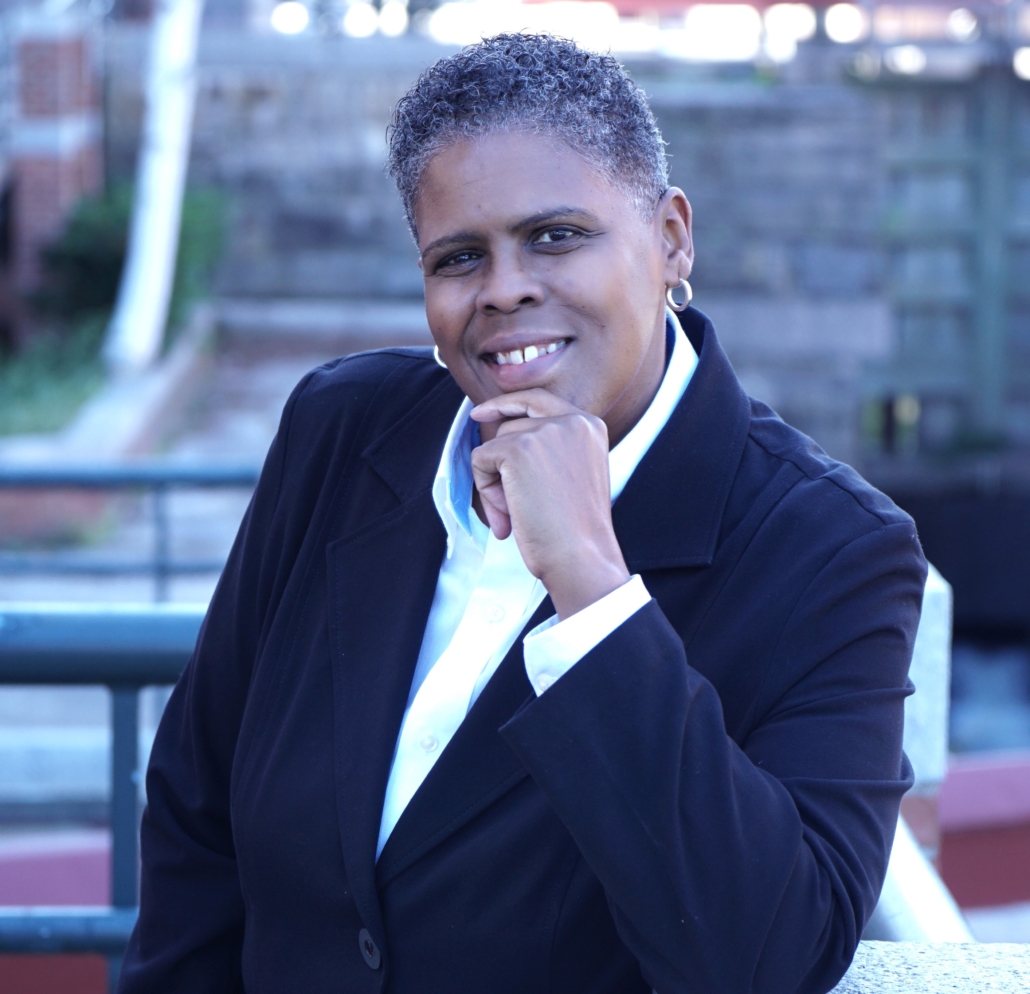
Isa Woldeguiorguis
Nominated by Carl Howell, CPO, Community Teamwork, Inc.
Isa Woldeguiorguis – she/her – is the Executive Director of The Center for Hope and Healing Inc. Isa began as the Executive Director of CHH eleven years ago. Isa has worked in the anti-violence field for twenty years, holding several statewide and national roles. Isa first came to Lowell in 1994 as an intern doing substance abuse alternative sentencing work at the Lowell District Court.
Isa is a well-respected leader and national trainer in the field of children, domestic and sexual violence, systems change, policy and practice. She is well known as a dynamic speaker, trainer with a unique style and teaching skills on these topics and for her activism in the areas of racial disparities. She has authored several articles on topics such as family-centered practice in child welfare, racial and ethnic disproportionality and immigration. She sits on the Board of the Massachusetts Women of Color Network and the National Women of Color Network, Inc.
We are excited to honor Isa Woldeguiorguis for her leadership and dedication in advocating for her community.
To Isa, Black History Month means learning about and celebrating the truth of Black history in this country and around the world. It means lifting up Black excellence, Black joy and Black futures. When asked what can the community do more of to recognize Black History Month during the year, she stated, “There is so much for all of us to learn about Black history. We can all make that commitment. We can also build genuine relationships with Black people, listen and validate our lives and experiences”.
We are privileged to have a strong, and fearless voice in our community. We thank Isa for all of her hard work and dedication to creating a safer, and better city.
#CommunityLeader #Leadership #Appreciation #BlackHistoryMonth #BlackLivesMatter #DEIatCTI #LowellBlackExcellence
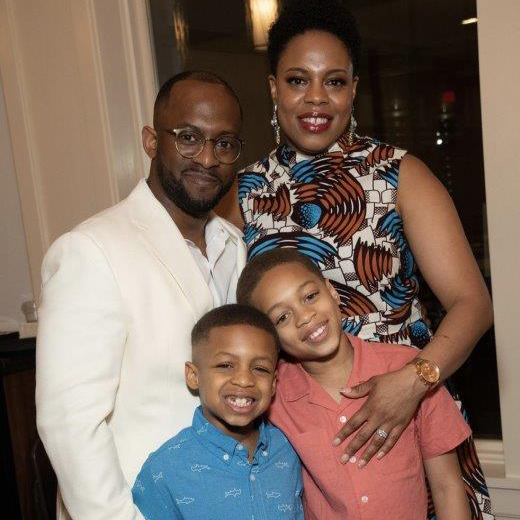
Nominated by Carl Howell, CPO, Community Teamwork
What is your title/role/organization and/or involvement in the community?
I am the Founder and CEO of The Leap Network, LLC a multi-specialty recruitment and consulting firm specializing in the placement of medical professionals and healthcare administrators. Prior to launching my firm in 2017, I was the Recruiting Manager for Lowell Community Health Center and have been in the corporate and non-profit Talent Acquisition, Workforce Development and Human Resources fields since 2005. I currently serve as a Board Member for the Massachusetts Workforce Association, Advisory Board Member for EforAll Merrimack Valley, Corporator for Lowell General Hospital, and Advisory Board Member for University of Massachusetts Lowell College of Fine Arts, Humanities and Social Sciences (FAHSS). I am a former Trustee of the Merrimack Repertory Theatre and former President of the Center City Committee which advocated and spearheaded public-private collaborative projects for the betterment of the downtown area. I am a Co-Founder of The Foundation Mixer, a networking event series for ascending professionals to foster greater connections, engagement, and collaboration. I am also a member of the DEI Consortium- Lowell. I currently reside in Downtown Lowell with my wife and two sons.
What does Black History Month Mean to you?
When I think of Black History Month, I wonder what resistance and roadblocks Carter G. Woodson experienced while fighting for Black history to be taught in public schools. His staunch desire and fight to ensure that Black history wasn’t solely relegated to the history of the transatlantic slave trade, was something that we should all be thankful for. And we should all be thankful and grateful for this because the social, political, and economic fabric and benefits of America would not be what it is today without the ingenuity, sacrifice and perseverance of Black people. I think about W.E.B DuBois and Booker T. Washington and the diversity of thoughts and approaches when addressing the plight of Black people. I think about Ida B. Wells, the racism that existed within the suffrage movement and the rise of Black feminism. As Ida once said, “The very frequent inquiry made after my lectures by interested friends is “What can I do to help the cause?” The answer always is: ‘Tell the world the facts.’” There are forces who are working hard to revise, sanitize, or erase history. To me, the work during Black History Month, and all the days before and after, is simple- Tell the Truth and Fight for it!
What can the community do more of to recognize Black History during the year?
Being of Nigerian ancestry, I have come to understand more and more that there is a real disconnect and understanding of Black history amongst fellow Africans, those in the Caribbean and overall in the diaspora. When Carter G. Woodson wrote “Miseducation of the Negro” in 1933, he argued that schools conditioned Black people to accept a low status in society and not to be proud of their heritage. This conditioning was purposeful and systemic and has caused generations of Black people around the globe to either question their identity or believe they are lesser than. I believe education will always start at home so parents and families have an even greater responsibility to invest in continuous learning and some unlearning so that their children can be more enlightened. The greater community which, to me, includes educational and political institutions can play a great role by bridging gaps in learning and promote healing through on-going community conversations and ensuring that policies and laws that disproportionately impact Black people are informed by the lived experiences of that community. Recognition of Black History is one step. However, in my opinion, creating and sustaining an environment and culture that invests in it and hold others accountable for it is the harder part. This is the challenge I believe our community faces. We all have a collective responsibility to read, keep reading, and read some more. Read the good, read the bad and read the ugly. Shielding our young people from history will doom them to repeat it.
How did you become inspired to make a difference in your community?
I am the son of immigrants who left Nigeria in the early 1970s and made a new life for themselves and their children in New York City. At a very young age, I saw what hard work, sacrifice and perseverance looked like. It wasn’t always pretty but it did teach me many lessons that guide me today. I’ve been inspired by my parents, uncles and aunts, cousins, and siblings. I’ve been inspired by teachers who would push me to learn history and develop stronger skills in writing and critical thinking. I’ve been inspired by my in-laws who raised their children with the same values that I was raised in. I remember my parents always sending money back to their relatives in Nigeria to make sure they had clothes on their back or make sure they finished their schooling. Giving back and thinking about others has always been a part of my DNA.
What has been the most rewarding part of your commitment to the community?
Over the past decade, I am truly fortunate to have been surrounded by groups of like-minded Lowellians who believed that the city could do more to be more welcoming. Welcoming not only through the actions of individuals but also within its institutions and its systems. I believe that people will always come and go but the problems tend to remain the same. And so, I have committed myself to working hard to address systemic issues that ultimately impact the lives and livelihoods of so many in the community. There have been many rewarding aspects of my community involvement which, to name a few, include:
What advice would you give to future generations of leaders in the community?
Leadership can look and feel differently to many people. Some of our most celebrated humans throughout history were not always public-facing. Many of these individuals operated away from the lime-light and preferred it that way. Sometimes those who are labeled “leaders” are those that the community tend to see most often in various events or are affiliated with specific board(s), companies, organizations, or are known for their philanthropy. I believe that leadership needs to be broadly defined and assessed regardless of title or station in the community. There are too many people who limit themselves or make themselves smaller because they believe they do not have a certain observable status or title in society. And so, to the future generations of leaders, my advice would be for them to lead boldly wherever they feel most comfortable and to never compare themselves to other people. Having a high net worth or an advanced degree or being a life-long resident of a community are not prerequisites to leadership. Ultimately, I believe it’s a heart and mindset thing. Make sure the work you do affects other hearts and minds. This is how change happens!
What advice would you give to young people looking to make a positive influence in their community?
What do you hope to accomplish in the future to further your positive impact?
My legacy are my sons. Anything I do in the future or any positive impact I make, will have them in mind. If they can grow up to be active participants for doing good in their community or any line of work they choose, then I will be happy. You can’t become so ambitious and lose your family in the process. We have to think about our children. They will inherit the results of our actions or inactions.
#CommunityLeader #Leadership #Appreciation #BlackHistoryMonth #BlackLivesMatter #DEIatCTI #LowellBlackExcellence
Pictured – Bobby and Alexandra Tugbiyele with their two sons
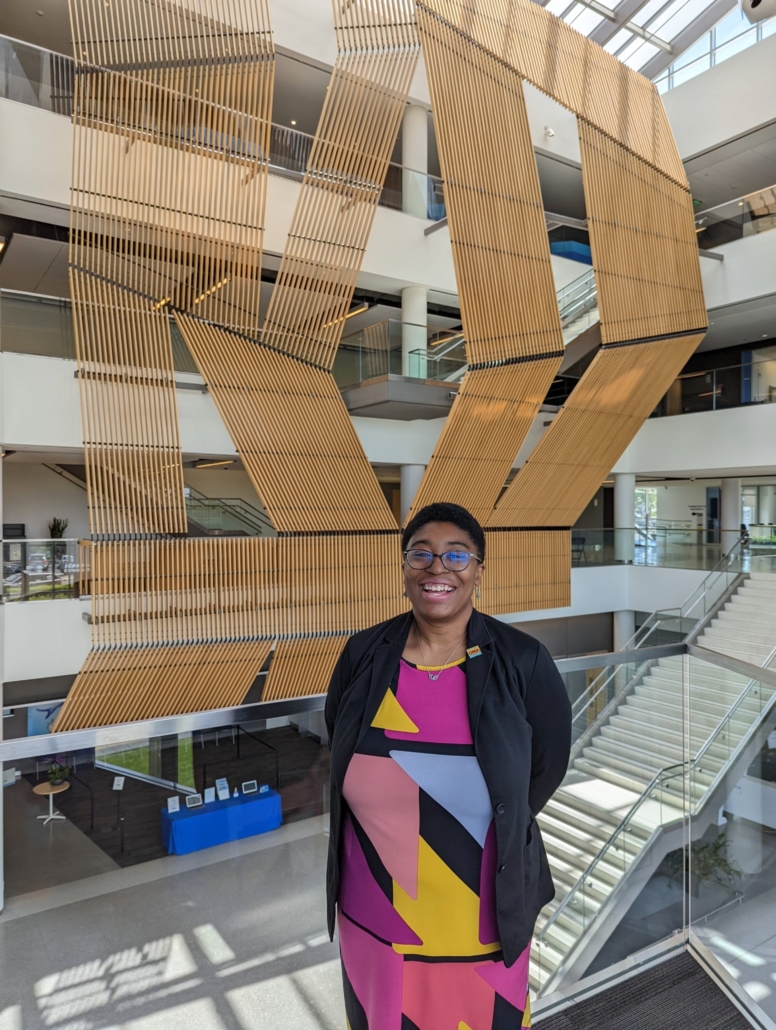
Maria McDuffie Clark
Nominated and written by Zarais German-George, Youth Navigator, Housing and Homeless Services at CTI
CTI is honored to recognize the Assistant Director of Multicultural Affairs at UMass Lowell, Kids in Tech-Board Chair, Maria McDuffie Clark, during Black History Month for their exemplary dedication to the community.
Maria McDuffie Clark has called Lowell their home since moving from North Carolina to pursue their master’s at UMass Lowell in Community Social Psychology, where they focused on learning the steps to develop civic engagement projects and systematically build community as well as analyze psychological trends that enhance positive social change. During their practicum at UMass Lowell, they served as the African Cultural Club advisor in the Multicultural Center at Middlesex Community College. There, Maria was inspired to use creative solutions to empower students to serve domestically and globally.
After connecting their passion with higher education and social justice, Maria served two years as a member of AmeriCorps Volunteer In Service To America (VISTA) with Massachusetts Campus Compact (MACC). In their second year of service, Maria took on the role of Co-VISTA Leader, supporting 25 VISTAs placed at universities in Massachusetts, leveraging campus resources to partner with community organizations. After their VISTA service, they worked at MCC as the Multicultural & International Student Services Coordinator, guiding diverse students through the enrollment process and engaging students in co-curricular activities centered around identity development and exploration of other identities.
To Maria, Black History Month means expressing a complex history within the U.S. and honoring those who have paved the way. When asked what can the community do more of to recognize Black History Month during the year, they stated, “Learn, unlearn, and then learn again! It’s not enough to attend events just this month. Please learn more about Black History to get a sense of where we can be in the future”.
We are grateful for Maria’s passion in giving back to the community and we thank them for creating leaders along the way.
#BlackHistoryMonth #BLM #DEIatCTI #LowellBlackExcellence #grateful #Leader #appreciation #BlackLivesMatgter #Leadership
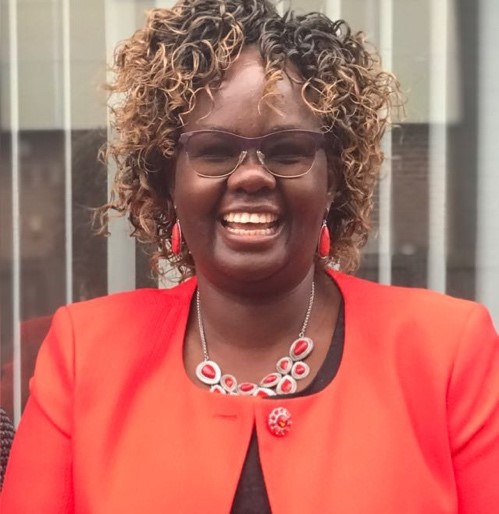
Florence Mwangi – Nurse, Founder and Chair Homeless Reform Project
Homeless Reform Project (HRP), 325 Chelmsford Street, Lowell, Massachusetts, Tel: 857 373 9626
Email: flowamwangi@yahoo.com
Nominated by Elizabeth Wando, Case Manager, Residential Programs, Housing and Homeless Services at Community Teamwork
BIOGRAPHY
“I believe that my patience and love for people is what has brought me this far and led to the formation of HRP. I know that nothing is impossible with GOD which is the same attitude I have towards helping people in tough situations.” Change comes by acceptance and trying”.
Our role as Homeless Reform Project (HRP) in our community is to eradicate homelessness by providing hope and shelter to those afflicted. Whether you’re affected or effected, homelessness is a concern to all.
Since the initiation of HRP in February 2019, I have witnessed homeless individuals with alcohol and substance abuse recovering and going back to normalcy, which is very rewarding and, is a motivation to continue.
Black History Month reminds me of the untold stories of all the great heroes who paved the way for us so that we can continue to make a difference in this world. The month is also an excellent reminder, for me to celebrate and teach the new generations of Black and American leaders, who have led the way for us to continue this journey.
I believe that the community can recognize Black history by utilizing the power of reading. If the city of Lowell can build/make little free libraries for the community e.g., at the park, grocery stores, and highlight books from black authors – those focusing on black leaders will bring more awareness to the community. Secondly, recognition and appreciation will also come if the community supports Black-owned businesses in Lowell and its environs and has cultural events and festivities for African Americans and Africans.
#CommunityLeader #Leadership #Appreciation #BlackHistoryMonth #BlackLivesMatter #DEIatCTI #grateful #LowellBlackExcellence
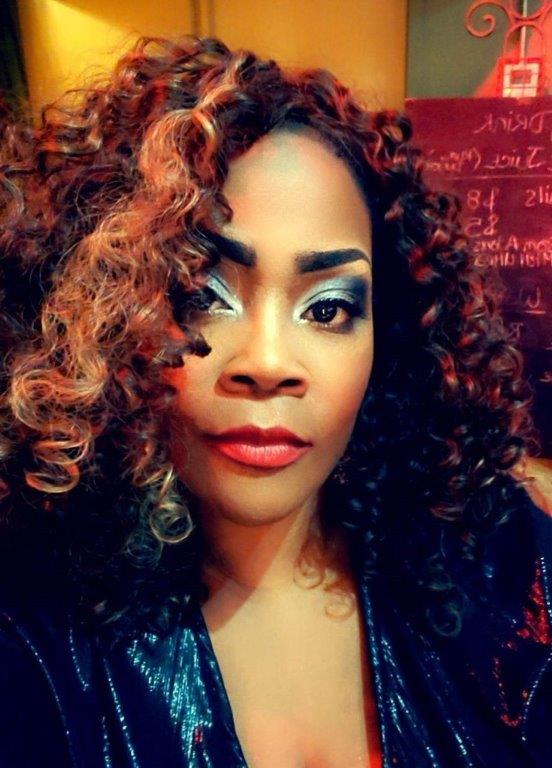
The Honorable Stacey Thompson
Nominated/Interviewed by Carl Howell, Chief Program Officer, Community Teamwork
CTI feels privileged to recognize the Honorable Stacey Thompson, Lowell School Committee Member and the Director of Workforce Learning & Development at Lowell Community Health Center.
Ms. Thompson is the first African-American elected to the School Committee and the first Black woman elected to any municipal office in the City of Lowell. She is humbled by what she feels is a tribute to Birdie Bell Malbory’s dream of an African-American sitting in an elected role after some 40 years since Birdie’s initial campaigns to become a City Councilor. While Ms. Thompson has broken though race and gender barriers, she identifies seeing the changes in engagement in our young people and finally having City leadership declare racism a public health crisis (albeit through contentious spaces and years of folks sharing very painful and traumatic experiences) as two of the most rewarding aspects of her roles as a member of the School Committee and DEI Consortium-Lowell.
Ms. Thompson’s perspective on Black history is that it is American History. It is often limited to stories of a few people and narratives of pain, suffering and poverty. Nevertheless, Black History is so rich. It does, and should, tell stories of overcoming the cruelties and inhumanity associated with slavery. However, to be a full history, it needs to shine a light on the ingenuity, the impacts, the very sweat equity that has allowed this nation to flourish in the ways that it has. Should it be relegated to one month? Absolutely not – although Ms. Thompson is glad that it does allow for all people to have a central focus and that unified work is done to amplify Black voices, work and people. Stacey expressed that, “Through ongoing conversations, we cannot change the hearts and minds of people without being willing to listen and learn. If you don’t know about Black history, educate yourself, bring it into your homes, your book clubs, your places of business, and in spaces like affinity clubs. Black history for too long has been seen as a non-priority but, to me, equipping young people and the community with the truth is never secondary. We need accountability to ensure it is being celebrated in every educational space and taught/incorporated throughout the year.”
It has been an honor for Ms. Thompson to experience seeing so many young people engage in her School Committee motions and reach out to her personally to thank her. She was humbled when she learned that her work in the community was being featured by students as a part of the Public School’s Civics Day Project.
Politics was not something Ms. Thompson ever was interested in pursuing. She didn’t have name recognition like some other folks who have either run for office before or who were a part of the political machine. However, she knew she needed to step up for our young people, especially with the civil unrest and the lack of representation in any number of spaces by people who looked like them. Stacey knew it was important for people to see a Black woman holding space and fighting for change – change that would not just be discussed, but implemented.
Her advice for the youth and future leaders – “Your voice matters. NEVER let anyone take your voice from you. Always walk in integrity. Remember, this is a MOVEMENT not a MOMENT. Lastly, your presence, your successes, the use of your voice, and your votes all make a difference. Protect your mental, emotional, physical and spiritual health”, and also know that Stacey is there.
The City of Lowell is indebted to Ms. Thompson for her leadership, vulnerability and vision.
#CommunityLeader #Leadership #Appreciation #BlackHistoryMonth #BlackLivesMatter #DEIatCTI #LowellBlackExcellence
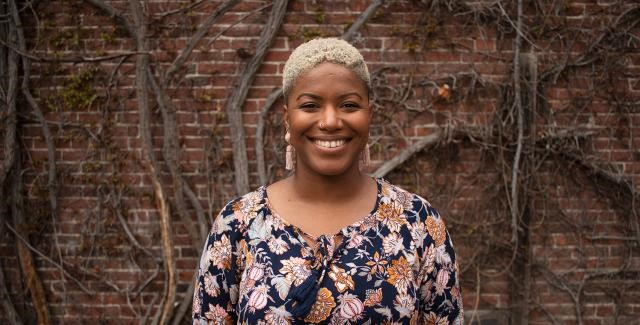
Christa Brown
Christa Brown is a Black, Queer storyteller, actor, and public speaker with a passion for bringing stories to life that have often been under-explored.
Brown founded the Free Soil Arts Collective in 2019 as a means to bridge the gap to opportunities for artists of color in the Merrimack Valley and beyond. The mission of the Free Soil Arts Collective is to seed liberation through storytelling. The Free Soil Arts Collective curates paid opportunities for artists of color, in an environment that promotes and fosters care, agency, and exploration.
Nominated by Marta Bobinski, Lead Case Manager, Housing and Homeless Services, Community Teamwork
We are excited to honor Christa Brown for her leadership and the creative ways she develops opportunities for BIPOC artists in the Merrimack Valley.
Here is a message from Christa on what Black History Month means to her:
“Black History Month is a reminder to celebrate the past, present, and future of Black lives and our contributions to the planet.
Black History Month was proposed and launched by Carter G. Woodson. According to Vanderbilt University, “In 1926, Carter G. Woodson, both the child and the student of formerly enslaved people, proposed and launched the annual February observance of “Negro History Week.” He lobbied schools to participate in a special program to encourage the study of Black history. February was chosen for the initial week-long celebration to honor the birth months of two abolitionists; Frederick Douglass and President Abraham Lincoln.
By the late 1960s, thanks in part to the Civil Rights Movement and a growing awareness of Black pride and identity, Negro History Week had evolved into Black History Month on many college campuses. In 1976, President Gerald R. Ford officially recognized Black History Month. President Ford called upon the public to “seize the opportunity to honor the too-often neglected accomplishments of black Americans in every area of endeavor throughout our history.”
I charge our community to continue to spread the word of our rich Black history right here in Lowell, Massachusetts. It’s the perfect time for our community to formally acknowledge the significance of Black people in Lowell. Not many people know that Lowell High School was the first desegregated public school in the United States or that there are 34 Underground Railroad stops in Lowell, or of the life of Birdie Malbory, the first Black person to run for the Lowell City Council in 1979. She ran three times with her last run in 1989 and did not win. Someone threw rocks and set fire to her campaign office in two separate incidents.
These are facts that should be publicly acknowledged throughout our community. If there’s any time to begin teaching Black history in our community, it’s during Black History Month.
More info can be found here: https://www.likelowell.com/black-history-in-lowell.”
#CommunityLeader #Leadership #Appreciation #BlackHistoryMonth #BlackLivesMatter #DEIatCTI #grateful #LowellBlackExcellence

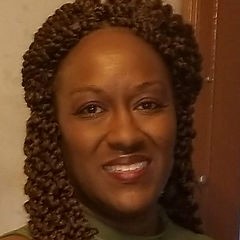
Dr. Shannon Butler-Mokoro
Shannon Butler-Mokoro, MSW, Ph.D. is the Dean of First-Year Students at Wellesley College. She is the interim Chairperson of the African Community Center of Lowell. Dr. Shannon Mokoro has worked in higher education for over 20 years as student affairs professional and social work educator. Her areas of research and interest include helping to build culturally humble and proficient organizations, social welfare history, the history of higher education, faith-based social work. She is a social work educator and conducts workshops and trainings for various schools and nonprofits around the issues of diversity, equity, access, and inclusion.
Nominated by Elizabeth Wando, Rehousing and Stabilization Case Manager, Residential Programs, Housing and Homeless Services, Community Teamwork
Primary Questions:
What is your title/role/organization and/or involvement in the community?
I am the Dean of First-Year Students at Wellesley College. I am also the Vice-Chair of the African Community Center of Lowell and the Assistant Social Secretary of the Cameroonians of Lowell Association. I am trained as a social worker who engaged in clinical work for a couple of decades before going into higher education. I taught in a few social work programs before I landed where I am today. Along the way I have done quite a bit of DEIA training for various organizations.
What does Black History Month Mean to you?
For me, every day is Black History. History making is fluid and occurs every day. So February is just a month to highlight what happens daily. A month to educate others who are not aware of what is happening every day in the Black/African American communities.
What can the community do more of to recognize Black History during the year?
Have ongoing conversations, speakers, workshops, social media posts of the accomplishments of Black people currently and historically. This is true of all of the cultural and racial and ethnic groups – celebrate all the ongoing accomplishments monthly to normalize the contributions of people of color consistently.
Optional Questions:
What has been the most rewarding part of your commitment to the community?
Anytime I am with groups of “Black folx” it is rewarding! Getting to learn about the different histories and cultures from which African Americans come has been wonderful. I am a social worker by training, so just talking with people – hearing their stories, learning their cultures, helping people meet their goals – all of it is rewarding!
How have you seen your efforts make a positive difference in people’s lives?
What advice would you give to future generations of leaders in the community?
How did you become inspired to make a difference in your community?
My parents and grandparents were active in their communities. I come from a long line of social workers and educators. I feel it is almost in my genes! I am inspired by my own family and those who came before me, but quite honestly I am most inspired by the people who are younger than me. They are awesome, energetic, well-informed, passionate, tireless, – I draw my inspiration from them.
What do you hope to accomplish in the future to further your positive impact?
What I would truly love to do is to spend more time mentoring the next generation of community leaders and activists. I’d love to encourage them, guide them, and lift them up to do the work that needs to be done. I am ready to step back and let others take the reigns and shine.
What have been some of your greatest accomplishments in your field?
What advice would you give to young people looking to make a positive influence in their community?
What would you say are the most important qualities needed to become a leader in the community?
How has your experience as a Black person influenced your work?
I always show up knowing that someone needs to see my Black face and body – someone needs to know there is someone with whom they can identify. I extend myself beyond my defined role to make sure I am making connections with the other Black/African/African American people wherever I am. That has often led me to then be involved in DEIA efforts, which is ok even though that is not my job. I show up and then make sure I use my experience and knowledge to help the other folx of color, especially those of African descent who may not always have a voice or power or influence. I have many privileges at this moment in my life and with those privileges come lots of asks and responsibilities. I am always happy to step up.
What advice would you give to other young Black people looking to make a difference in their communities?
You do not have to wait until you are older or have more experience to make a difference. You have something to contribute now. Get involved by being a youth member to an organization or a community board. Mentor someone younger than you. Use social media to be an advocate for others and to bring attention to what your community needs.
What was the most difficult obstacle you had to overcome to become a leader in your community?
#CommunityLeader #Leadership #Appreciation #BlackHistoryMonth #BlackLivesMatter #DEIatCTI #grateful #LowellBlackExcellence
Sign up for our E-Center newsletter for the latest news and events from Community Teamwork.
Pam Houlares is a native Bostonian born into a large Greek family. She grew up in a large extended family with aunts, uncles and cousins in the Boston area. Both sisters, including her twin, experienced a strong bond with their Greek culture and identity. After graduation from UMass Amherst, Pam’s older sister became a nun in Greece and has lived there for about 50 years. Her twin sister, Natalie, is a real estate broker with Sotheby’s in Boston.
In Pam’s 37 years in education, she began as a Spanish teacher, Curriculum Coordinator, and ultimately, a Principal of Jonas Clarke Middle School in Lexington, MA. After retirement, Pam worked in two colleges as an Adjunct Professor instructing courses in administration and continues as a Spanish tutor in her home -town.
During 2016 – 2020, Pam served as the President of the Hellenic Women’s Benevolent Association, a non-profit that oversees the Hellenic Nursing Home in Canton, MA. In fact, Pam’s mother, Jennie, was one of the founders of the nursing home in 1973. Pam continues to serve on the Board of Directors at the Hellenic Home.
Pam and Jim have four grandchildren, James, Conor, Catherine and Theodore, who live nearby, Aside from some babysitting, Pam and Jim feel very fortunate that they are very close and celebrate holidays and family events together.
Pam’s husband, James, has devoted his entire career to early childhood education. Jim displays that same enthusiasm and love of children to this day, and is adored by his children and grandchildren, alike. Both Pam and Jim are pleased that to continue to be a part of the CTI family and have contributed greatly to the Early Education programs at Community Teamwork.
James Houlares was born and raised in Auburn, Maine, He has a twin sister and also married a twin who has a twin sister as well. James has an older and younger brother as well. James and Pam have been married since 1974 and lived in Wellesley and now South Natick. They have two children, Nathaniel and Elena, named after my father-in-law and mother. Nathaniel and Christina have two children, Catherine (2.5 years old) and Theodore (7 months). Elena and John have two children, James (9) and Conor (7).
In1962, Jim arrived in Boston to attend the Hellenic College and Holy Cross School of Theology to earn a Bachelors and an advanced degree. His studies continued at the University of MA in Amherst where he earned his Masters. Jim’s first job with Head Start was as a teacher in Lewiston, Maine 1969 – 1971. After earning his Masters, in 1973, he was hired as an Education Coordinator at the Head Start program at Community Teamwork. At that time, CTI served 120 children in six classrooms. When Jim retired in 2005, the Agency served more than 516 Head Start and Early Head Start children.
During Jim’s 32 years at Community Teamwork, he was involved with many challenging and exciting initiatives including:
MA Education Coordinators Association
CDA Advisor and Instructor
State Supplemental Funding for Head Start Programs
Planned and designed the James A Houlares Early Learning Center in Lowell
Chaired the State Head Start Association
Hiring the First Executive Director of the MA Head Start Association
Chaired the New England Head Start Association
Jim presently serves on the following boards: New England Head Start (NEHSA), National Head Start (NHSA), and the Thom Child and Family Services.
Jim is forever grateful to Community Teamwork Inc. for the opportunities it offered to him in the field of early learning and care for children and families, and Community Teamwork is forever grateful to Jim for his contributions to the field of Early Learning and his additional contributions to Community Teamwork over the past few years.
Community Teamwork is celebrating Bill Lipchitz’s retirement after a legendary 51-year career. He currently serves as the Director of Real Estate Operations for Common Ground Development Corporation, a Community Teamwork subsidiary that develops affordable housing for low-income families in northeast Massachusetts. He oversees several other Community Teamwork subsidiaries, including Merrimack Valley Housing Services, Inc. and Mechanics Hall Corporation, and serves as a Special Assistant to the Executive Director working with the Community Teamwork Board on Board Development and Governance.
Bill’s career at Community Teamwork started in 1971 when he was hired as a Community Planner. Initially, Bill was assigned to the Town of Dracut to assist the Town in identifying and applying for grants. Bill was quickly promoted to Deputy Director of the Agency and served in that position for many years. Bill transitioned to oversee the Agency’s subsidiary, to assist Common Ground in implementing its vision of building and managing a portfolio of affordable housing. Common Ground has grown, and now supports family and senior housing in Methuen, Lowell, Acton, and Westford. Common Ground is currently working on new developments in Acton and Dracut and is assisting Community Teamwork and its partners in developing at least 300 units of permanent housing for homeless individuals.
Bill has devoted his life’s work to Community Action and to the City of Lowell, not only at Community Teamwork but in his many other roles including serving as Clerk of the Lowell Development and Financial Corporation, President of the Center City Committee, and on the Boards of the Cambodian Mutual Assistance Association (CMAA), Lowell Heritage Partnership, and the National Community Action Foundation. Bill was also deeply involved with the Friends of Lowell High School and Shedd Park Baseball (where he served as Baseball Commissioner!)
Bill has also mentored many staff at Community Teamwork and beyond. His love of his family, City, and work all centered Bill’s life and career. Passing on his passions and knowledge has helped move the career path forward for many staff and community members over the years.
Bill holds a Bachelor’s in Chemistry from Lowell Technological Institute (now UMass Lowell), a Master’s in Organic Chemistry and a Master’s in Urban Affairs from Boston University. We are all fortunate that Bill left his first career teaching at the college level. Bill is the proud father of Rebecca and Will and grandfather of five.
Aleksandra Tugbiyele (née Ward) is a Development professional turned Executive Assistant that builds relationships to make positive change. Her Lowell story began when she transferred to UMass Lowell and earned her BA in English. Since then, Aleksandra has helped raise nearly $100M for local and national non-profit organizations including the Children’s Trust Fund, UTEC, Acre Family Child Care, and Jumpstart for Young Children.
Aleksandra is a passionate advocate and volunteer in our community. She is currently serving on the Board of Trustees for Community Teamwork, Inc,; is a member of the DEI Consortium- Lowell, and was recently appointed to the Massachusetts Commission on the Status of Black Men and Boys. In her current role within the Office of the President at Middlesex Community College (MCC), Aleksandra provides administrative and operations support. She is also a part- time student! Above all, her favorite “job” is “Best Friend and Wife” to Bobby, and “Mom” to Sammuel and Ellis.
Originally from Worcester, Massachusetts, Aleksandra is from a family of heroes. She is the proud daughter of a teacher and a fire-fighter, and is the big sister to a nurse. She adores bagpipes, describes fire truck sirens as a “lullaby”, and drinks mostly Polar seltzer and Bustelo coffee . In her spare time she enjoys supporting small businesses, and together with her children practicing Kung-Fu and tending their plot at the Rotary Park community garden.
Bobby Tugbiyele (2-B-L-AY) is the Founder and CEO of The Leap Network, LLC, a multi-specialty recruitment firm specializing in the staffing and placement of medical professionals and administrators. Prior to launching his firm in 2017, Bobby was the Recruiting Manager for Lowell Community Health Center and oversaw the career services and job development arm of Community Teamwork Inc.’s Workforce Development division.
He currently serves on the Board of Corporators for Lowell General Hospital, a board member for the Massachusetts Workforce Association, and is a member of the Middlesex 3 Coalition, which is focused on economic development, job growth and retention in Middlesex County. He is an advisory board member for UMass Lowell’s College of Fine Arts, Humanities and Social Sciences (FAHSS) as well the Entrepreneurship-For-All (EForAll) business accelerator program. He is a former Trustee of the Merrimack Repertory Theatre and former President of the Center City Committee, which advocated and spearheaded public-private collaborative projects for the betterment of the downtown area. He is a Co-Founder and organizer of The Foundation Mixer, a networking event series for ascending professionals to foster greater connections, engagement and collaboration.
In 2018, Bobby was awarded Young Professional of the Year by the Greater Lowell Chamber of Commerce. Bobby has a Bachelor of Arts in Political Science and minor in History from the University of Massachusetts Lowell and a Graduate Certificate in Nonprofit Management and Leadership from Boston University.
Last year, Bobby was a first time City-Wide candidate for Lowell City Council who placed 4th place with over 4100 votes. He currently resides in Downtown Lowell with his wife, Aleksandra, and two sons, Samuel and Ellis.
